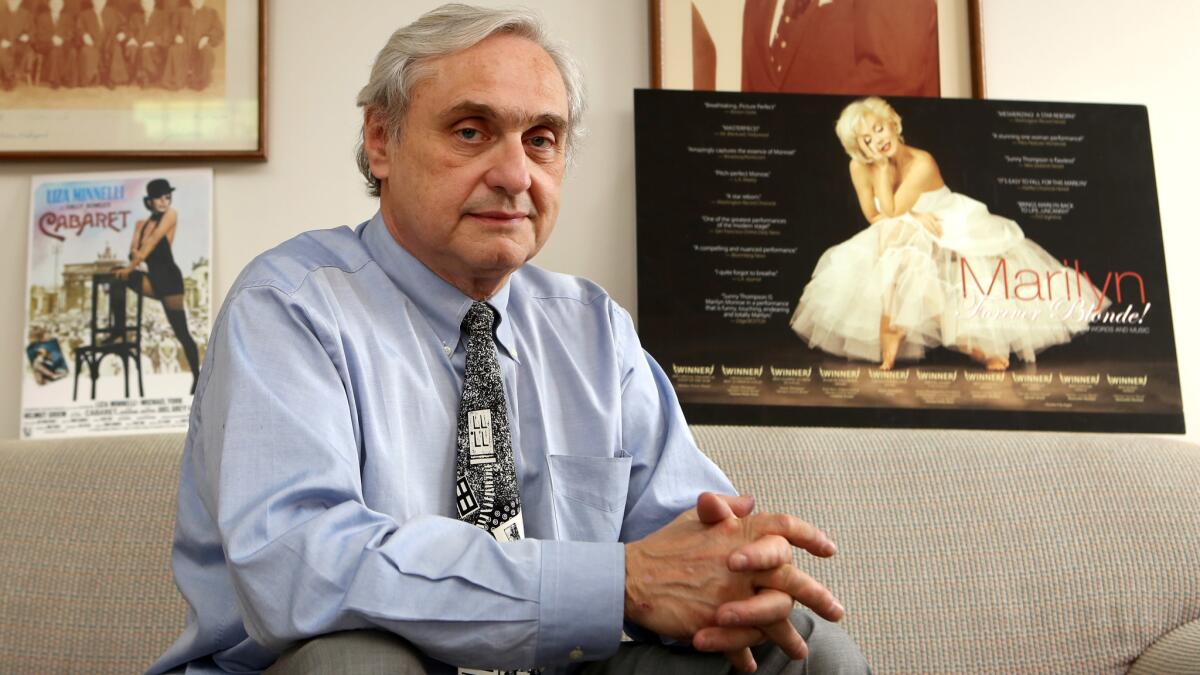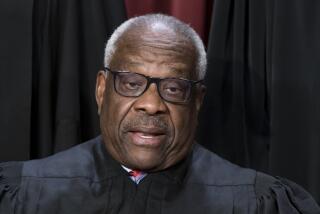9th Circuit Judge Alex Kozinski steps down after accusations of sexual misconduct

In his 35 years on the federal appeals bench, Judge Alex Kozinski had become known for his brilliant legal mind and stylish, provocative writing.
A Kozinski clerkship at the Pasadena 9th Circuit courthouse was often seen as a ticket to a similar position at the U.S. Supreme Court.
But it was his alleged treatment of clerks and other women in the legal profession that brought his career careening to a halt. It had been the subject of whispers for years, and on Monday, Kozinski abruptly retired in the wake of more than a dozen complaints from former clerks, externs and others accusing him of sexual misconduct.
In interviews with the Washington Post and in blog posts, at least 15 women accused him of inappropriate behavior, from showing them pornography to improperly touching them.
After initially insisting he had done nothing wrong and pledging to fight the charges, Kozinski spoke with lawyers and family members over the weekend and changed his mind.
“I cannot be an effective judge and simultaneously fight this battle,” Kozinski, 67, said in a statement distributed by the U.S. 9th Circuit Court of Appeals. “Nor would such a battle be good for my beloved federal judiciary.”
Kozinski apologized for making his clerks feel uncomfortable, saying that was not his intent.
He joins many other prominent men in a government, politics, journalism and entertainment forced to step down in recent weeks because of sexual harassment or abuse accusations.
A California Court of Appeal justice retired several weeks ago after an investigation found he had mistreated his female staff.
Two women who said sexual remarks by Kozinski made them uncomfortable could not be reached for comment Monday. A third declined.
In 2008, The Times reported that Kozinski had a server containing pornographic images, prompting the judge himself to ask for an investigation by the federal court system.
He had inadvertently made the server accessible to the public, and the court system admonished him for carelessness.
The recent drumbeat of misconduct allegations began Dec. 8, when the Washington Post reported that six former clerks and externs had complained about Kozinski’s behavior. A former clerk said he had showed her pornography from his server.
Other former clerks weighed in on blogs, and the 9th Circuit directed Kozinski be investigated. Two of Kozinski’s four law clerks resigned Thursday.
The following day the Post reported complaints by several more women, including some who accused him of improper touching. A former law student, 33, said he touched her breast with “deliberateness” during a reception last year when he flipped her lapel to read her name tag.
The allegations against Kozinski underscored the potential vulnerability of law clerks, who generally are required to maintain confidentiality about what goes on in their judges’ chambers.
Clerks can file complaints against federal judges, but the new lawyers often count on recommendations from the judges to propel their careers. Kozinski’s remaining clerks were expected to be reassigned; it was not immediately clear whether those who resigned would be rehired to work for other judges.
The federal court system’s investigation of Kozinski had not yet begun. Federal judges, who serve for life, can be removed only by Congress, but the courts can sanction judges, recommend their impeachment and pressure them to resign.
Kozinski, a Republican appointed by President Reagan, was often described as a conservative. But he viewed himself as a libertarian and often railed against what he saw as unfairness in the criminal justice system.
One of his closest friends in the 9th Circuit was Stephen Reinhardt, considered one of the nation’s most liberal federal judges. Reinhardt on Monday called his colleague’s retirement “a great loss to the court.”
Reinhardt and Kozinski, dubbed “the odd couple” years ago, dissented together on cases in which both believed the criminal justice system had ensnared people unfairly.
One law professor who asked not to be identified because of a professional connection to the judge described Kozinski as “unfiltered.”
He was known for planting kisses on the cheeks of both male and female lawyers, an act he saw as funny but that embarrassed or offended some of the recipients.
In his statement Monday, Kozinski apologized for having offended people, blaming his sense of humor and a tendency to speak candidly.
“I’ve always had a broad sense of humor and a candid way of speaking to both male and female law clerks alike,” he wrote.
“In doing so, I may not have been mindful enough of the special challenges and pressures that women face in the workplace,” he wrote. “It grieves me to learn that I caused any of my clerks to feel uncomfortable; this was never my intent. For this I sincerely apologize.”
Kozinski was born in Romania, and at age 12 he moved to the United States with his parents, who were Holocaust survivors. His family settled in Los Angeles, where his father ran a small grocery store. Kozinski received undergraduate and law degrees from UCLA.
He described himself in Monday’s statement as a “refugee from Communism.”
“I firmly believe that a strong judiciary, free from political pressures, is vital to the preservation of this great nation,” he wrote.
In the staid world of the law, Kozinski stood out.
He held movie nights at courthouses, serving pizza, salad and drinks and showing films that often related to the law. Court staff and the public alike were invited.
Kozinski punctuated his rulings with humor and words not seen in other court decisions.
In one case, he wrote, “The parties are advised to chill.”
In another, he wrote that lethal injection wrongly attempted to sanitize executions.
The guillotine would be the most humane form of execution, but because the public would never accept it, firing squads should be considered, he wrote.
Kozinski supports capital punishment, but his language was characteristically blunt.
“If we as a society want to carry out executions, we should be willing to face the fact that the state is committing a horrendous brutality on our behalf,” he wrote.
When he served as chief judge, a rotating position, he worked to make the court more accessible to the public. Every hearing now can be watched on the internet.
Still, critics saw him as a showboat, and some former clerks said it was well known within the court that Kozinski tended to cross the line in his behavior toward women.
Shortly after the Post reported the first sexual misconduct charges, Kozinski insisted that he had done nothing wrong and would not resign.
“If this is all they are able to dredge up after 35 years, I am not too worried,” he told The Times in a telephone interview.
But he sounded more rattled than his words betrayed, and a friend said the growing accusations had upset him and his family.
President Trump, who has been sued over allegations of sexual misconduct and accused of sexual assault, will appoint Kozinski’s successor.
UPDATES:
7 p.m.: This article was updated with additional background.
11:40 a.m.: This article was updated with additional background
9:45 a.m.: This article has been updated with Kozinski’s statement.
7:29 a.m.: This article has been updated with staff reporting.
This articles was originally published at 6:55 a.m.
More to Read
Get the L.A. Times Politics newsletter
Deeply reported insights into legislation, politics and policy from Sacramento, Washington and beyond. In your inbox three times per week.
You may occasionally receive promotional content from the Los Angeles Times.











